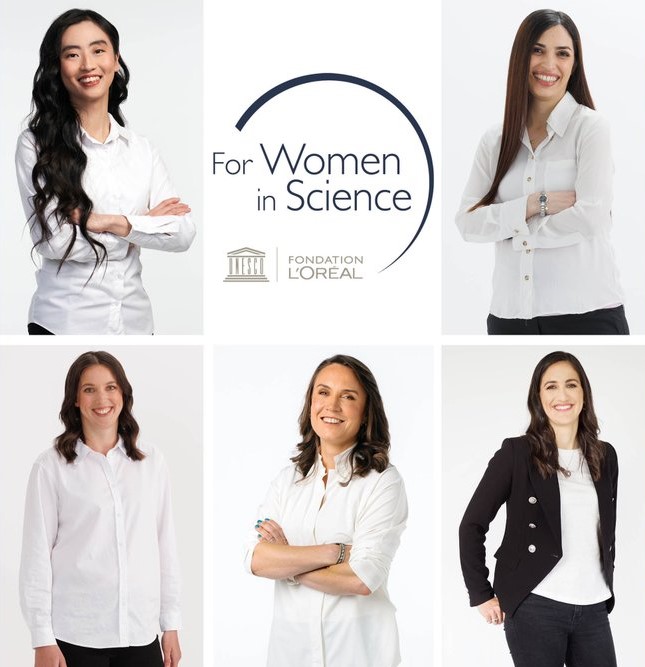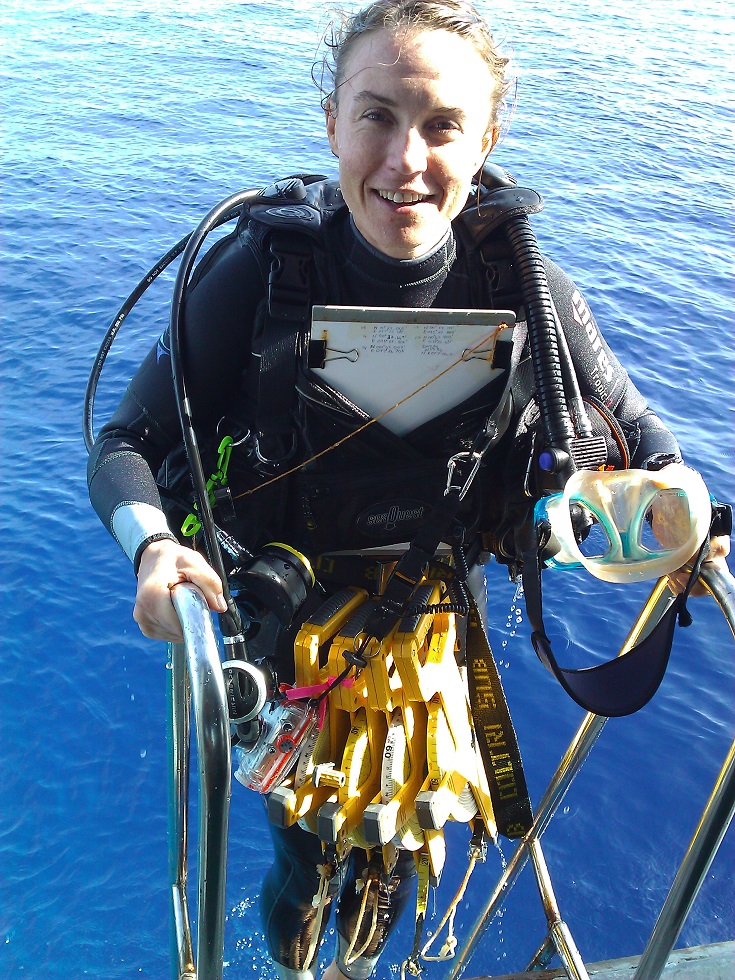
IMAS early career researcher, Dr Kirsty Nash, was today named one of this year’s recipients of the prestigious L'Oréal-UNESCO Australia and New Zealand For Women in Science Fellowship.
The Fellowships are awarded each year to five eminent women scientists with exceptional careers, to recognise, encourage and support the advancement of women's science and scientists.
“It is a huge privilege to receive this award, which is unique in that it doesn’t just profile women in science, but also encourages and enables the next generation of female scientists through practical support such as covering child care costs,” Dr Nash said.
The $25,000 Fellowship will contribute to Dr Nash’s research exploring the link between climate change, public health and coral reef fisheries. To understand the nutrient profiles of fish, she must unravel how environmental change will affect the availability and transport of nutrients through food webs.
“For over a billion people around the world, fish are a major part of their diet – and a vital source of micronutrients that come in a form that humans can readily absorb,” Dr Nash said.
“But climate change poses a significant threat to our marine ecosystems, so it’s critical we understand how this will affect the nutrients people gain from fish.”
 Micronutrient deficiency can seem relatively harmless but can have a profound effect on human health. For example, Vitamin A deficiency is responsible for over 600,000 premature deaths each year globally, and up to 500,000 cases of preventable blindness in children.
Micronutrient deficiency can seem relatively harmless but can have a profound effect on human health. For example, Vitamin A deficiency is responsible for over 600,000 premature deaths each year globally, and up to 500,000 cases of preventable blindness in children.
“Fish and other aquatic foods have real potential to help address micronutrient deficiencies.
"So my hope is that the outcomes of this research will help society realise that potential and support governments grappling with malnutrition against the backdrop of a changing climate.”
Dr Nash, who is also affiliated with the Centre for Marine Socioecology, said the L'Oréal award will support her vision to deliver world-first predictions of how nutrient production from fisheries will change in response to a changing environment, and to quantify micronutrient flows through reef food webs.
“The thing I find really exciting about my work is that it is interdisciplinary.
"It relies on working with a team of people outside of my own area of science, such as public health and climate change experts, to address a question that has real world impact,” she said.
“It has the potential to really make a difference to communities, and contribute to global food and nutrition security.”
Images: Dr Kirsty Nash
Published 22 November 2021